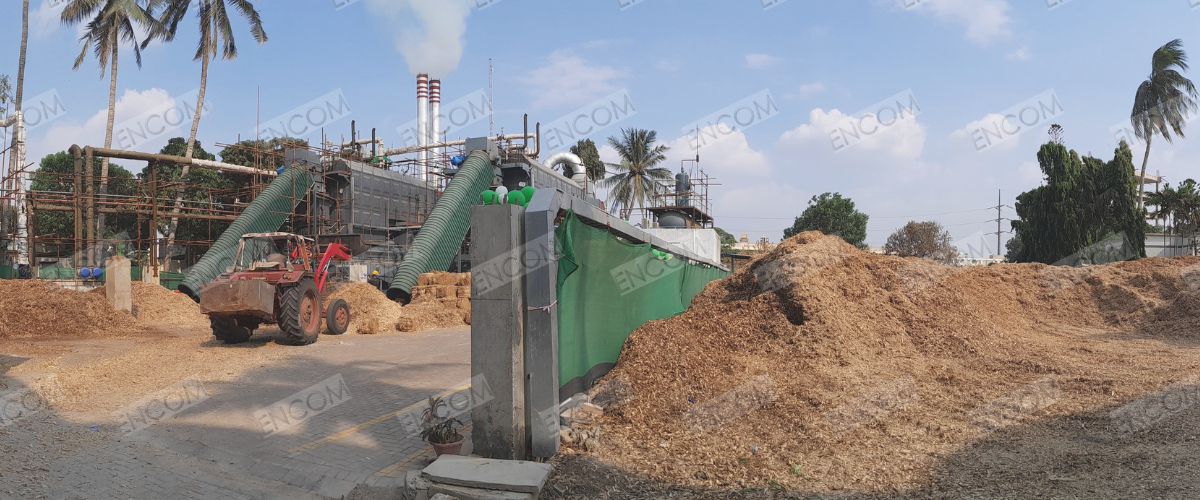Have you ever found yourself in a meeting with a European or US buyer, only to realize the conversation has shifted from price and quality to your company’s carbon footprint? For Pakistan’s exporters, whether in textiles, rice, food, ceramics, or engineering; sustainability is no longer just a buzzword. It’s a business imperative. But how do you actually deliver on those ESG (Environmental, Social, Governance) promises, especially when the pressure is mounting from EU and US buyers?
At Encom Pakistan, we’ve spent over two decades working alongside the country’s leading industries. We’ve seen firsthand how the right technology can turn compliance challenges into real business opportunities. One solution that stands out, especially for export-oriented firms, is the adoption of biomass boilers. Here’s what we’ve learned, and why it matters now more than ever.
Why ESG is Now Essential for Exporters
The landscape is changing fast. With the EU’s Carbon Border Adjustment Mechanism (CBAM) already in its transitional phase, and full pricing on the horizon, exporters are under growing pressure to provide emissions data and demonstrate real reductions. Even if your products aren’t directly listed like steel or cement, your buyers are being asked to collect detailed emissions information and show progress on decarbonization.
We’ve worked with textile mills as well as rice processors who are now receiving detailed sustainability scorecards from their European clients. It’s clear: if you can’t show credible progress on emissions, you risk losing preferred-supplier status, missing out on green finance, or even facing new costs at the border.
The Biomass Boiler Advantage: Turning Local Residues into Global Compliance
Pakistan has a unique advantage. Our fields generate vast amounts of rice husk, bagasse, cotton stalks, and corn cobs every year. Instead of letting these residues go to waste or contribute to local pollution, we can use them as fuel for modern biomass boilers. We’ve helped mills transition from imported gas or furnace oil to locally sourced biomass, and the results speak for themselves: lower energy costs, more stable supply, and a significant reduction in fossil CO2 emissions.
Consider a textile plant needing high-pressure steam for dyeing and finishing. By converting its boiler to run on rice husk, the plant not only cuts its Scope 1 fossil emissions but also aligns with the GHG Protocol’s reporting standards. The biogenic CO2 from biomass is disclosed separately, which European buyers recognize as a credible decarbonization step. With continuous flue gas analyzers and robust emissions controls, these plants are ready for even the most rigorous audits.
Real-World Impact: Efficiency, Compliance, and Local Value
Switching to biomass isn’t just about meeting compliance requirements. It’s about building resilience. When global fuel prices fluctuate, companies relying on local agro-residues enjoy more predictable operating costs. We’ve seen rice mills as well as sugar plants secure multi-year supply contracts with local farmers, creating value for both industry and rural communities.
There’s also a strong circular economy story. Using residues for energy means less open burning, cleaner air, and opportunities to repurpose ash as a soil amendment or construction material. These are the kinds of stories that resonate with international buyers and with the right measurement and reporting systems, you can back them up with real data.
What Exporters Need to Prepare
If you’re aiming for export-grade ESG, here’s what we recommend based on years of project execution:
- Prioritize agricultural residues with clear documentation; buyers are increasingly focused on deforestation risks.
- Invest in emissions controls that meet both local and international standards.
- Set up robust MRV (measurement, reporting, and verification) systems – think flue gas analyzers, fuel tracking, and third-party audits.
- Archive everything: Lab reports, emissions tests, maintenance logs. Auditors appreciate a thorough paper trail.
And remember, it’s important not to overstate claims. ‘Carbon neutral’ is a high bar, and buyers are getting more sophisticated about what that really means.
Partnering for Success: Why Experience Matters
Implementing a biomass boiler project is about more than just equipment. It’s about engineering, compliance, and long-term reliability. That’s where our experience as an OEM-certified partner makes all the difference. At Encom Pakistan, we support you through every stage; from pre-sales audits and system design to turnkey installation and 24/7 after-sales support. Our team is trained by world-leading OEMs, ensuring you get solutions that work and data you can trust when the auditors come calling.
If you’re ready to turn sustainability from a challenge into a business advantage, let’s start a conversation. With the right approach, you can meet global buyer demands, cut costs, and build a reputation as a responsible exporter; one that stands out in a competitive market.

